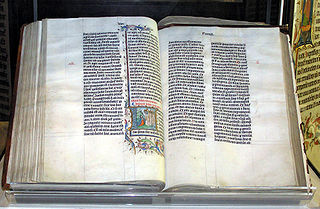The Holy Spirit
The Holy Spirit, or Holy Ghost, is one of the three persons in the Trinity—along with the Son, Jesus Christ, and the Father. The Trinity is a concept that is important in the history of Christianity but was never specifically taught in the Bible. The Trinity is important as we attempt to understand and describe what is happening in our salvation and in God's care for us today, but it is not essential that we understand everything about the Trinity to experience God's love and embrace.

No matter how the Trinity is configured, the Holy Spirit is God among us today. It is God working in our hearts to draw us to salvation, and it is God working in our lives to purify us and perfect us for the world to come. Jesus called the Holy Spirit "the advocate" or "comforter" because it would comfort us while we wait for Jesus to return. (John 14:15-16:15) There are many descriptive names for the Holy Spirit. Together they give us an idea of what the Spirit does and how we are changed by the Spirit's work.
An important historic symbol of the Holy Spirit is a dove descending. This reminds us specifically of the Holy Spirit descending like a dove when Jesus was baptized. (Matthew 3:16, Mark 1:10, Luke 3:22, and John 1:32) It represents the Spirit bringing comfort and God's presence to us today to sustain us and keep us functioning.
We sometimes describe the members of the Trinity by their best known actions as God the Creator, God the Redeemer, and God the Sustainer. This is also a way for us to refer to the Trinity without using words that can limit our image of the Trinity to only one gender. Remember that all images are limited ways for us to refer to the persons of the Trinity. None of these words or images is by itself complete in identifying God or God's works.
The Works of the Holy Spirit
There are in Scripture different works of the Holy Spirit. These works include the Gifts of the Spirit mentioned by the Apostle Paul in I Corinthians 12:1-11; I Corinthians 12:27-31; and Romans 12:6-8; and the Fruit of the Spirit mentioned in Galatians 5:22-23.
The Gifts of the Spirit from I Corinthians 12 are
- utterance of wisdom,
- utterance of knowledge,
- faith,
- gifts of healing,
- working of miracles,
- prophecy,
- discerning spirits,
- various kinds of tongues,
- interpreting speeches.
In I Corinthians 12:27-31 the list is broadened to include
- forms of assistance,
- forms of leadership
The Fruit (singular) of the Spirit from Galatians 5 is
- love,
- joy,
- peace,
- patience,
- kindness,
- generosity,
- faithfulness,
- gentleness, and
- self-control
It is not clear that Paul intended for these lists to be considered complete. He may have been listing them as examples of what the Spirit provides us.

The Holy Spirit and the Bible
We also believe that the Holy Spirit uses the work of the writers of the Bible. Inspiration or "breathing into" is an important part of the work of the Holy Spirit. In our worship services we ask God to send his Spirit onto us and help us receive the Word of God from the words read to us from the Bible. This is the other side of the Holy Spirit's use of the Bible called "illumination." Together inspiration and illumination make the Bible useful in our lives. We believe that we receive the Holy Spirit as we receive and are moved by the Word of God.
Blasphemy against the Holy Spirit
In Matthew 12:22-32; Mark 3:22-30; Luke 12:10 Jesus refers to a sin against the Holy Spirit called blasphemy. Jesus says it is one sin that can never be forgiven. There is some disagreement of what this sin is. Augustine of Hippo taught that this blasphemy is the rejection of the work of the Holy Spirit in a person's life. If you continue to the very end to reject the Holy Spirit as it works in your life, you have blasphemed against the Holy Spirit. Rejecting the voice of the Holy Spirit is rejecting the offer of peace with God.